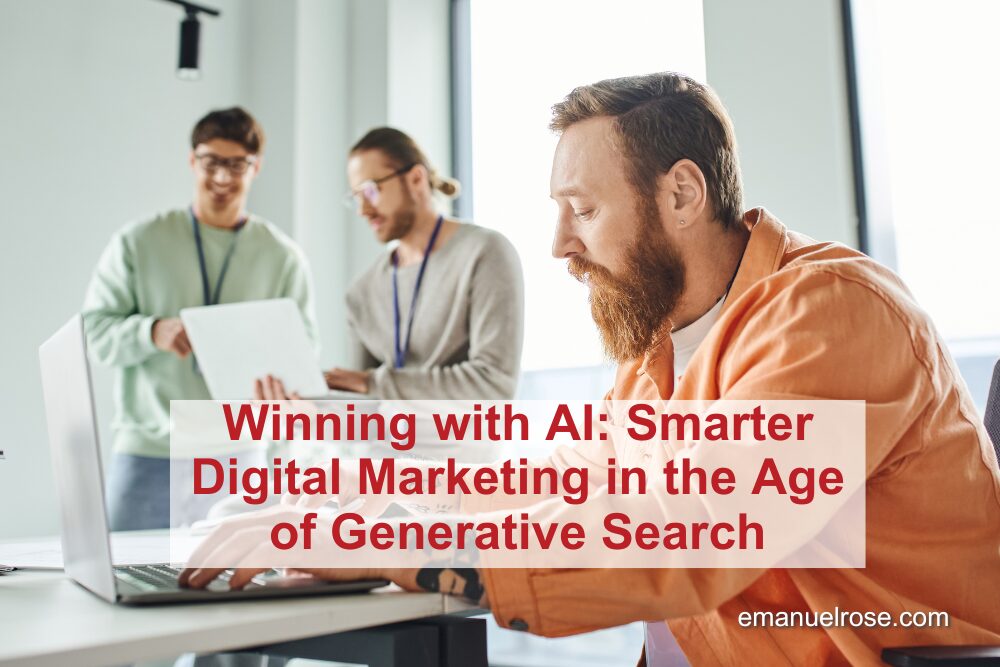The synergy between Search Engine Optimization (SEO) and Generative Engine Optimization (GEO) is becoming increasingly significant in marketing. Understanding how emerging AI technologies such as GPTs (Generative Pre-trained Transformers) handle web content is indispensable to reach audiences effectively.
Transitioning from SEO to GEO
SEO maintains its role as a crucial marketing component; however, the rise of AI requires businesses to reevaluate their methodologies. Organizations must adapt to new AI-driven search paradigms that prioritize content based on user intent and tailor strategies accordingly.
Recent developments underscore the importance of AI’s role in reshaping search behavior. Organizations should ensure that AI systems can comprehend and reflect their capabilities accurately, influencing AI-enhanced search results positively.
Preparing for AI-Infused Search Dynamics
- Strategizing Content: Consumers need to easily find relevant information about businesses. The focus should shift from generic, high-traffic keywords to creating content that addresses specific queries related to products and solutions. This approach facilitates delivering the correct information to potential customers.
- Practical Training of AI Models: Organizations should empower AI systems with comprehensive, accurate data. This involves making traditionally internal resources accessible online to better educate AI models, thus improving their representation in AI-enhanced searches.
- Leveraging Social Media Platforms: AI systems increasingly draw data from platforms like LinkedIn. A robust and genuine social media presence can influence AI’s understanding of a brand’s offerings and strengths.

The Implications of AI on Traditional Search Traffic
AI technologies are transforming traditional search patterns, leading to a phenomenon where potential searches are resolved through AI, thereby lessening the interaction with conventional search engines. This reduces direct traffic to websites, as AI systems provide answers directly within the search platform.
Strategic Implications and Required Adaptations
- Seamless AI Integration: Organizations must effectively integrate AI insights into their marketing processes. This cyclical approach involves adapting to the intelligence gathered from AI tools to continuously enhance marketing strategies.
- Ensuring Data Accessibility: It is crucial to ensure that business data is accessible to AI systems so that they can harness the benefits of AI-driven market insights. Obstacles to data accessibility can significantly limit the effectiveness of these systems.
- Utilizing Advanced Tools: Tools like NOATOA allow businesses to track and analyze how AI systems interpret their brand identity. This feedback is crucial for refining and aligning marketing strategies with customer intent.


Looking Forward: The Role of AI in Shaping Marketing
As AI technologies grow more advanced, it becomes imperative for businesses to keep pace. Employing AI strategically can free marketing teams from routine tasks, allowing more time for creativity and strategic decision-making. AI’s potential to deliver detailed, context-aware marketing solutions positions it as a key instrument in achieving business objectives.
Embracing AI is not simply about adopting new technologies; it represents an evolution towards sustainable growth and maintaining a competitive edge. With strategic AI integration and collaboration across departmental efforts, businesses can ensure ongoing success amid technological advancements.
Thanks to Michael J Buckbee for emphasizing how AI redefines search and shapes more innovative marketing strategies.
Get to know Michael J Buckbee: linkedin.com/in/michaelbuckbee
Get to Michael J Buckbee’s company: knowatoa.com
Watch the podcast episode featuring Michael J Buckbee: youtu.be/DtC0DQ74L0I

